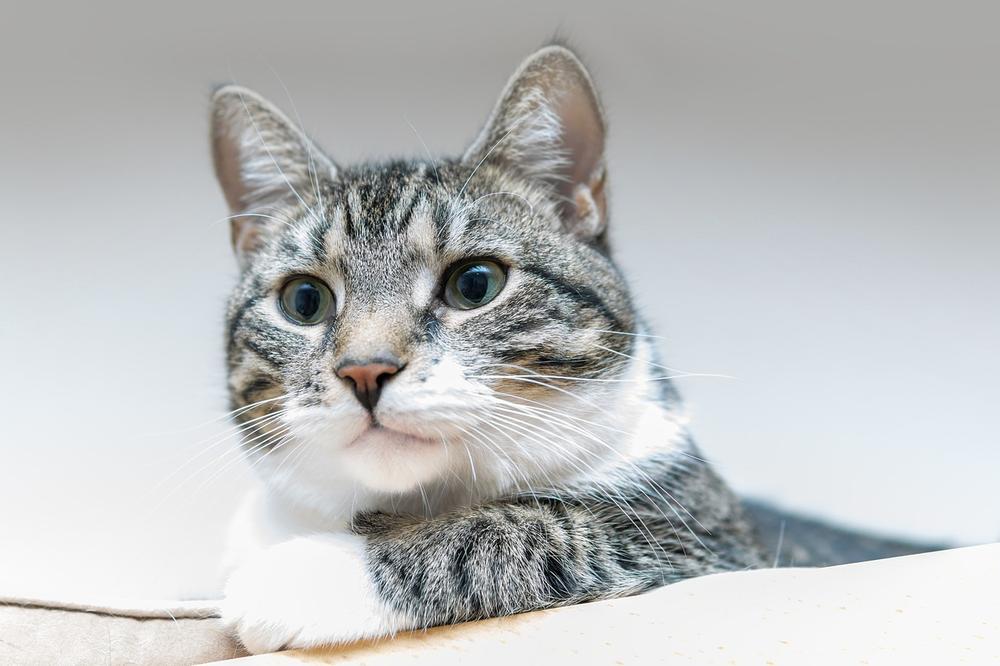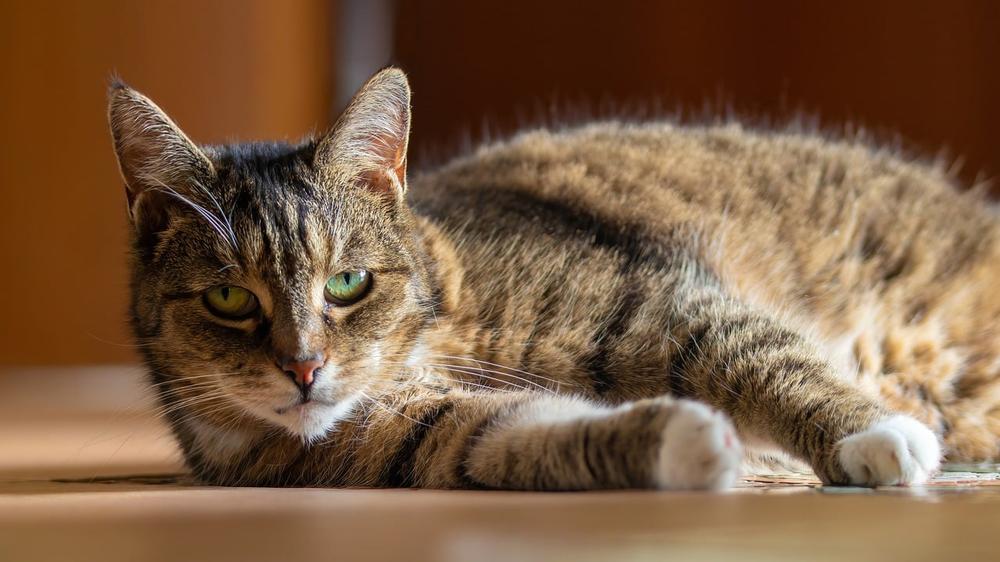Can Cats Eat Rosemary? (Impressive Nutritional Benefits)

Can cats eat rosemary?
Concerned about the impact of rosemary on your furry feline friend? 😺
Wondering if it's safe or if there are any hidden dangers lurking beneath those fragrant leaves?
Well, let me put your mind at ease and take you on a journey of discovery.
Let's dive into the fascinating world of cats and rosemary and find out once and for all if it's a match made in heaven or a recipe for disaster.
Ready?
Let's begin.
Is Rosemary Safe or Toxic to Cats?
Rosemary is generally safe for cats and can even be added to their food for flavor. However, caution should be taken with other plants in the Lamiaceae family, as they may be toxic. Overindulgence in rosemary can upset a cat's stomach, and allergies are rare but possible.
Let me enlighten you, my friend.
The great news is that rosemary is generally safe and non-toxic for your cats.
Don't fret just yet.
You see, cats can have a nibble of rosemary without any big issues. It's actually not even on the list of plants that are poisonous to pets.
Phew!
What a relief!
Actually, you can even add a touch of rosemary as a flavor enhancer to your cat's food.
A little extra pizzazz never hurt anybody, right?
But before you throw a rosemary party for your furry friend, there are a couple of things you should please keep in mind.
Firstly, be cautious of other plants from the Lamiaceae family.
Some of them can be toxic and cause tummy troubles for your cat.
Stay away from those troublemakers!
However, fret not, my friend.
There are plenty of safe herbs from the same plant family that you can still enjoy with your feline companion.

Think basil, candle plant, prostrate coleus, sage, summer savory, winter savory, Swedish ivy, and thyme.
Wow, so many options for you and your cat!
Another thing to remember is that while rosemary itself isn't toxic, too much of it may upset your cat's delicate tummy.
Those essential oils can be overwhelming if consumed excessively.
You know how cats can be, always pushing the boundaries!
So, be on the lookout for any signs of overindulgence.
If your precious fur baby experiences stomach pains, vomiting, diarrhea, lack of appetite, or lethargy, it's time to take action.
Now, allergies to rosemary in cats are pretty rare, but they can happen.
Some cats might show sensitivities like excessive sneezing, itchiness, skin irritations, or respiratory symptoms when exposed to the herb.
Keep an eye out for any of these signs.
In outdoor areas, it's smart to separate your garden beds from cat-friendly zones with barriers. Let's not tempt them to go on a rosemary chewing adventure, shall we?
A little bit of rosemary can go a long way.
It's all about moderation and paying attention to any unusual reactions from your feline pal.
Main points I'll expand upon further down this article:
- Rosemary extract is safe for cats, but should only be present in their cat food.
- Too much consumption of rosemary extract can cause digestive troubles and depression in cats.
- Some cats may have an allergic reaction to rosemary extract in their food.
- Rosemary essential oil is toxic to cats and should not be ingested.
- Inhaling aerosolized essential oils can irritate a cat's respiratory tract.
- Cats should be kept away from undiluted rosemary oil due to its harmful effects.
- Rosemary may deter cats from eating large amounts due to its strong odor.
- Introduce rosemary slowly into a cat's diet with small portions.
- Most of a cat's diet should consist of meat.
- Rosemary has various benefits for cats, including a euphoric effect, digestive aid, and coat improvement.
But wait, there's more to know about rosemary and its effects on cats.
Are you curious to learn about the potential benefits and drawbacks of feeding your furry friend rosemary extract?
Let's dive right in and uncover the truth.
Can Cats Eat Rosemary Extract?
Rosemary extract is safe for cats to consume when added to their cat food, but moderation is key to prevent digestive issues and potential depression.
You have to note that some cats may be allergic to rosemary extract when included in their food.
While it is commonly used as a culinary herb in dishes such as lamb, pork, or pizza sauce, excessive consumption of rosemary extract can have negative effects on a cat's digestion and mental well-being.

Moreover, if you're wondering if thyme is safe for cats to eat, you're not alone.
I've written a detailed and informative blog post that specifically addresses this concern.
When it comes to the well-being of your feline friend, I strongly urge you to check out Can Cats Eat Thyme.
In this article, you'll find all the answers you need regarding thyme and its suitability for your furry companion.
Don't miss out on this valuable resource if you want to ensure your cat's health and happiness.
Is Rosemary Essential Oil Safe for Cats?
Ingesting or inhaling rosemary essential oil can be toxic to cats, causing symptoms like drooling, difficulty walking, and respiratory irritation. Cats lack the enzymes to break down essential oil compounds, making it unsafe for them. Keep your cat away from areas with rosemary essential oil for their safety.
Is it Safe for Cats to Eat Rosemary?
I'm about to give you all the details on whether or not it's safe for your beloved feline to munch on some rosemary.
Let me break it down for you.
First things first, let's be clear:
Ingesting rosemary essential oil is a big no-no for cats.
It can actually be toxic to them, so you definitely want to avoid this scenario.
Now, let me explain why...
If your cat happens to gobble up too much rosemary oil, watch out for any signs of trouble like drooling, difficulty with walking, or even swelling.
These are not good indications, my friend, and you should waste no time in telling your vet about them ASAP.
Here's the thing, my fellow cat lover:
Essential oils, including our dear friend rosemary essential oil, can cause serious harm to our furry companions.
You don't want to use them topically or even have them lingering in the air around your adorable kitty.

When a cat ingests rosemary essential oil, it can wreak havoc on their tummy and lead to unpleasant issues like vomiting, diarrhea, and depression of the central nervous system.
Believe me, that's the last thing we want for our precious furballs.
But hold on tight, because there's more!
Just the act of inhaling aerosolized essential oils from diffusers can irritate your cat's respiratory tract, resulting in symptoms like—brace yourself—vomiting and diarrhea.
Trust me when I say that you definitely want to avoid going down that road.
Here's what you gotta understand:
Cats have livers that lack certain enzymes required to efficiently break down compounds found in essential oils.
This means that concentrated oils, whether they're inhaled or ingested, can pose harmful risks to your furry friend. Not cool at all, right?
So here's the bottom line:
Choose to play it smart by keeping your cat away from any areas that are dripping with rosemary essential oil.
It's for their own safety and well-being, after all.
Let's do what we can to protect our feline companions because they mean the world to us.
But are there any safe ways to introduce rosemary into your cat's diet without putting their health at risk?
Let me share some tips and tricks with you that could potentially satisfy both your curiosity and your cat's taste buds!
How Do I Get My Cat to Eat Rosemary?
Introduce rosemary slowly into your cat's diet
So, you’re interested in feeding your kitty some rosemary?
Well, let me tell you, most cats aren't big fans of it.
However, every cat is different, so there's always a chance they might enjoy it!
Just bear in mind that rosemary has a strong smell that usually deters animals from consuming too much of it.
To make sure things go smoothly, start by gradually introducing small amounts of rosemary into your cat's diet.
Incorporate rosemary into their existing food
Here's what you can do...
Since cats need a protein-rich diet (they are meat lovers, after all!), try finely chopping up some rosemary and adding it to their usual food.
Sprinkle a little bit in there and see how they react. Don't overdo it, though; remember, small quantities!
Or, if you want to go the extra mile, offer them a tiny sample of rosemary directly from your hand.
Now, don’t expect them to go crazy for it, but hey, they might surprise you!
Cats may not be fond of rosemary
Now, here's the thing...
Cats, just like us humans, have their own preferences when it comes to food.
Some cats may be attracted to the scent of rosemary, while others couldn't care less.
It's simply a matter of personal taste.
But the truth is, cats generally aren't too keen on the taste or aroma of rosemary.
So, don't expect them to gobble up large quantities of it anytime soon.
They tend to prefer other flavors, and who can blame them, right?
I surely can't.
The bottom line is, persuading cats to eat rosemary isn't easy.
But as long as you introduce it slowly, watch out for any negative effects, and respect their individual feline preferences, you should have a drama-free rosemary adventure!
Rosemary Benefits for Cats
| Topic | Information |
|---|---|
| Is it safe for cats? | While rosemary is generally considered safe for cats, it should be given in moderation. Large amounts could potentially cause stomach upset or allergic reactions. |
| Potential effects on cats | Some cats may experience a euphoric effect when exposed to rosemary, similar to catnip. It can also aid in digestive problems, reduce inflammation, and improve skin health. |
| Essential vitamins and minerals | Rosemary contains various vitamins and minerals that can benefit cats, contributing to their overall health and well-being. |
| Impact on coat and skin | Incorporating rosemary into a cat's diet can help improve the condition of their coat and skin, promoting a shiny and healthy appearance. |
| Antioxidant properties | Rosemary possesses antioxidant properties that can help protect cats against harmful free radicals, potentially reducing the risk of certain diseases. |
| Anti-inflammatory benefits | Rosemary's anti-inflammatory properties may help alleviate discomfort from inflammation-related issues in cats, enhancing their overall comfort. |
| Natural mosquito repellent | Additionally, rosemary acts as a natural repellent against mosquitoes and pests, making it a helpful addition to outdoor spaces where cats may spend time. |
Is it safe for your cat to eat rosemary?
Let's get straight to the facts:
The scent of rosemary can make your cat feel euphoric, just like catnip does.
If you want to give your feline friend a little mood boost, rosemary might be the answer.
But that's not all...
Rosemary can also help cats with digestive problems and inflammation.
It's a double whammy of benefits.
And there's more...
This herb is packed with essential vitamins and minerals like Vitamin A, Vitamin C, folate, and calcium.
By adding rosemary to your kitty's diet, you're giving them a healthy push.
But wait, there's still more...
Rosemary even improves the condition of their coat and skin.

So not only will they feel good, but they'll look good too!
Now, here's an important tip when growing rosemary indoors:
Make sure it's out of reach for your cat.
We definitely don't want any accidental snack incidents causing trouble.
Oh, I almost forgot to mention...
Rosemary contains antioxidants like rosmanol and carnosic acid that fight against cancer and protect the brain from damage caused by free radicals.
Talk about doing it all!
But wait, there's still more...
Rosemary has ursolic acid which promotes muscle growth, and betulinic acid which reduces inflammation.
It's like the complete package right here.
And if you thought that was enough...
The camphor in rosemary also acts as a natural repellent against pests and mosquitoes.
It's like having our very own ninja defender.
And that wraps up today's article.
If you wish to read more of my useful articles, I recommend you check out some of these: Can Cats Eat Arugula, Is Lemongrass Safe for Cats, Can Cats Eat Basil, Can Cats Eat Parsley, and Is Turmeric Safe for Cats
Talk soon,
-Sarah Davis